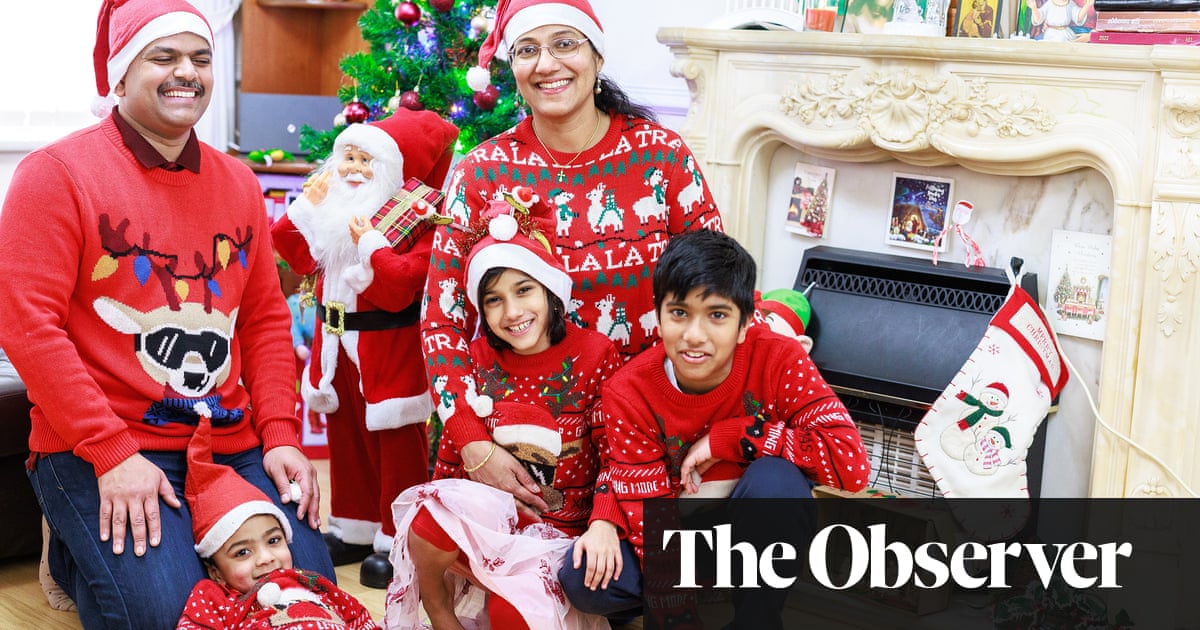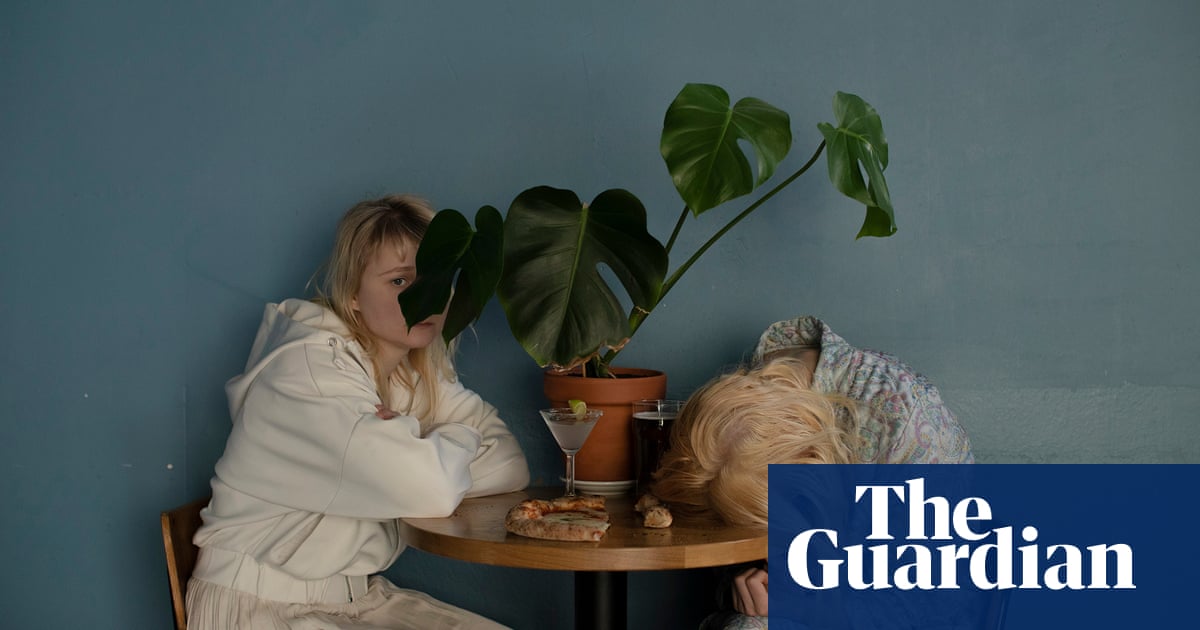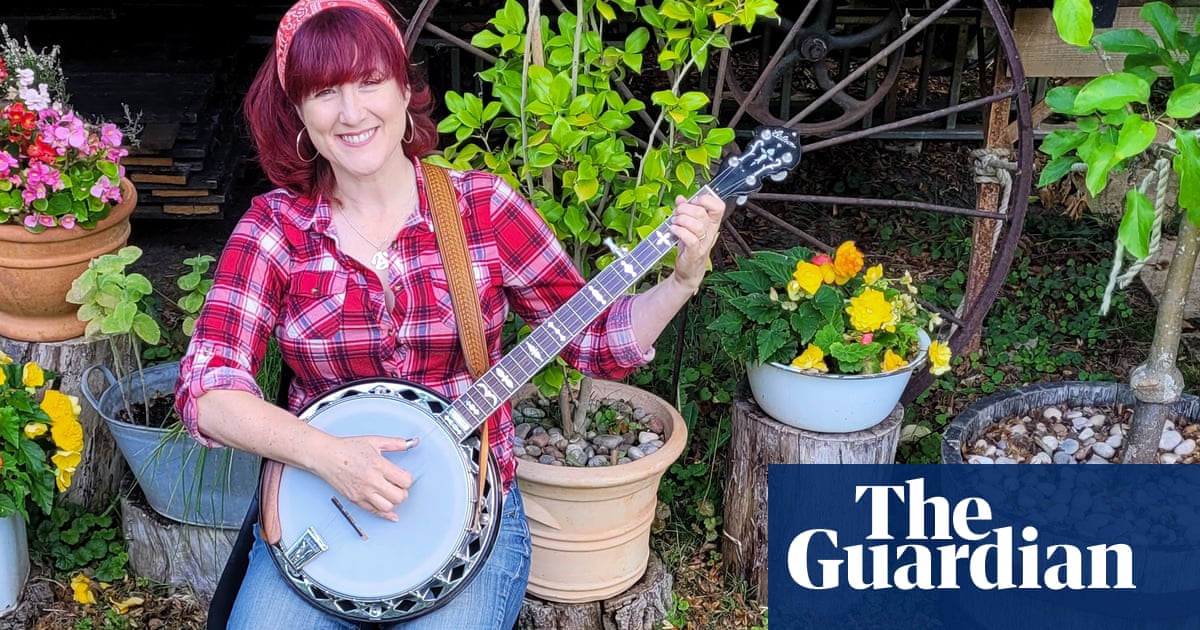
Father Happy Jacob has a reason to be cheerful. When he started St Thomas’s Indian Orthodox Church in Liverpool in 2002, his congregation numbered about 60 families, and stayed at that level for almost two decades.
Then, a few years ago, things began to change. “We have seen a massive increase in families coming to the church,” says Jacob, 48. At his last count, there were 110 families, with worshippers including NHS workers, international students and about 100 school-age children.
This story is being repeated across Britain. From Liverpool to London, Preston to Bristol, church congregations are being bolstered by Indian Christians. Most are from southern states such as Kerala and Tamil Nadu, where Christianity is strong. Many have recently moved to the UK.
The boom is in sharp contrast to the national trend. According to the latest census, Christianity is in decline in England and Wales: the portion of the population describing itself as Christian has fallen from 59.3% in 2011 to 46.2% in 2021. But the number of Indian Christians has surged over the same period.
While they remain a small portion of the total number – about 27.5 million –who say they are Christian, the Indian contingent rose from 135,988 in 2011 to 225,935 in 2021, the fastest rise of any ethnic group.
“There are lots and lots of Christians coming from India,” says Rev Joshva Raja of the British and Foreign Bible Society. As well as boosting dedicated Indian churches, the new arrivals are contributing particularly to Catholic congregations, but Raja says: “I see some of the Anglican churches growing too.”
Some of those arriving grew up as part of protestant denominations that were founded in India after it gained independence in 1947. NHS worker Pradeep George, 42, secretary at the Church of South India in East Ham, east London, says the number of families attending has doubled since before Covid to about 80. Services are quite similar to Church of England ones, with hymns, bible readings and a few twists, such as plum cake – popular in Kerala.
Jacob’s church in Liverpool is part of the Malankara Orthodox Syrian church, also known as Indian Orthodox, which traces its origins to the arrival of Saint Thomas in India in 52 AD.
The church’s weekly “energetic gathering” lasts about two hours and is usually held in Malayalam, Kerala’s official language. Afterwards, people stay to socialise for much of the day, sharing foods such as appam – fluffy rice pancakes – lamb biryani or croissants with tea. There is also a Sunday school with about 100 pupils.
Over Christmas, carol singers from St Thomas’s run a door-to-door service in Liverpool, Chester and beyond, visiting all the families from the congregation. This weekend, dressed in Christmas jumpers, they were in the living room of Suriya Varghese, 37, and her husband Anup Cherian, 40, who recently started attending the church with their three children.
The Keralan family had been living in Qatar before moving to the UK last year after both parents got jobs as electrical design engineers for the same company. Their involvement with the church extends far beyond Sunday services. Their children – Abner, 10, Anika, 7, and Arush, 4 – attend the Sunday school, where Suriya teaches.
They had help from the church network with everything from finding housing and applying for driving licences to coping with UK weather and picking trustworthy handymen.
“The church plays a very big role in our lives,” says Anup. “This is about being part of the community, especially for the kids.”
For Ephrem Sam Mattappallil and his friends, the support afforded by the church community has also been a lifeline. Mattappallil, 25, who moved to London last year to study, runs a support group for students within the Indian Orthodox Church, many of whom are “struggling”. Last year, it helped about 120 people. “Our parents, relatives and friends are not here, and there is financial pressure as well,” Mattappallil says. “Through the church, we can find a lot of friends, and share our experiences. It helped me a lot.”
Elsewhere, Indian Christians are finding community in mainstream churches. At the Catholic church of St Osmund in Salisbury, Wiltshire, Father Jonathan Creer has been “surprised” and “delighted” by the trend. He said that in the past two years, mass attendance has been boosted by a “huge increase in the Indian community”, many of whom work at the local NHS hospital. The Indian families also include large numbers of children, teenagers and 20-somethings, who seem to have a more positive attitude to religion than some of their young British counterparts, he says.
The increase has been particularly noticeable since the Covid lockdowns. “Some of our congregation – mostly older, white people – have still not come back, and some of them died, so it’s very noticeable now, looking out at mass, that we have many Asian and other faces,” Creer said. “It’s quite surprising in Salisbury, because you walk around the streets and it seems almost a mono-ethnic place, but actually, that’s not true.”
He said that despite what some might think, the new arrivals had been really welcomed with open arms. “You might imagine that in a rather staid, middle-England place like Salisbury, people might wonder what was going on, but they have been delighted.”
One way the congregation has embraced the Indian newcomers is by embracing a tradition observed in Kerala of passing around a “quite large” statue of the Virgin Mary, with a different worshipper taking it home each week. “People were very enthused about that,” Creer said.
At other churches, Indian Christians have found themselves in the minority. Arun Vedhanayagam Selwyn, from Chennai in Tamil Nadu, began attending the Anglican St John the Baptist church in Eltham, south-east London, after moving to the UK last year.
“It’s mostly people from the local area at services,” he says. “It’s very rare to see another person from India.”
At 25, the master’s student at Greenwich university is also much younger than most of the other worshippers. “Mostly it’s old age people here,” he says. “Whereas in India, people from different age categories come to the church.”
Nevertheless, he has found the community “very welcoming”. The services in Eltham are also more fun, he says. Back home in India, he says, they “drag the service out for hours” whereas here it’s “very compact, so no one gets bored. I like the vibe.”












